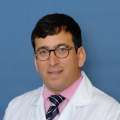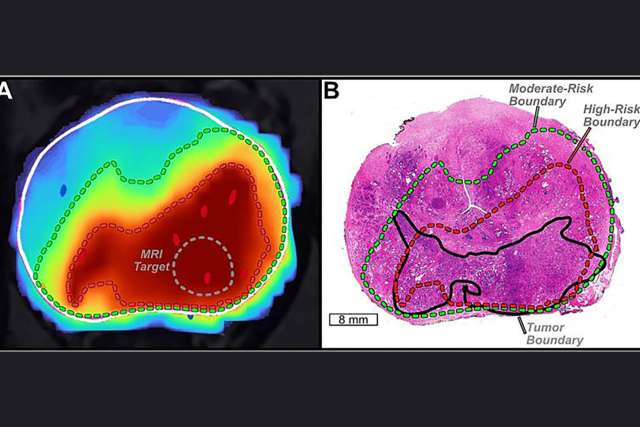Research presented at the American Association for Cancer Research (AACR) Annual Meetings is often practice-changing. Data presented at the AACR Virtual Meeting I earlier this year led to two new FDA approvals – including one led by UCLA’s Dr. Edward Garon for a new treatment for people with advanced lung cancer.
More than 61,000 people from 140 countries logged in to watch the cutting-edge scientific program that included a timely session on COVID-19 and Cancer. The second part of the meeting will be five times larger in terms of number of sessions, filled with more innovative scientific topics from across the spectrum of basic and translational cancer research.
In this Q&A, AACR President Antoni Ribas, MD, PhD, director of the tumor immunology program at the UCLA Jonsson Comprehensive Cancer Center and Program Chair for the AACR Annual Meeting 2020, shares how his role of President of AACR is evolving and what to expect at the second part of the virtual meeting.
What were some of the big takeaways from the first part of the virtual meeting?
Our opening plenary had three practice-changing presentations. There were two FDA approvals based on the data presented at the meeting. One of those approvals was led by Dr. Garon and the other one was for pembrolizumab, which can be given every six weeks, instead of every three weeks. This means patients come less frequently to get infusions, which is especially impactful during the COVID-19 pandemic.
What will some of the big topics discussed at the second half of the virtual meeting?
Part two of the meeting is going to be five times larger. It's the bulk of the abstracts that were submitted that are either presented as oral presentations in symposia that follow scientific themes or a poster. Our posters are going to be posted online with a five-minute presentation by the author. And anyone who registers — which is free to everyone — can download these short presentations anytime during the meeting.
Then there's the awards and special lectures. In addition, there are 70 sessions of educational symposia so all of the educational program is being done at this time. The opening ceremony will include Speaker Nancy Pelosi and Senator Roy Blunt. We have a session on COVID-19 and Cancer Research, where we're featuring cancer researchers who are presenting their data on COVID-19 research they have been working on, and will include a presentation by the Director of the National Institute of Health, Dr. Francis Collins.
What are you personally looking forward to hearing more about at the meeting?
People show up to AACR to present the best of their work, which is really cutting-edge science. The level of the research is at the top of the top. And it goes from basic science to population science to patient care to healthcare disparities to clinical trials. It's the whole breadth of the science in one meeting.
I also think it's really important to highlight how unevenly COVID-19 is affecting people in certain socioeconomic and ethnic groups. We will have a COVID and cancer disparities session that will help address these issues.
And then we will have a panel discussion on racial injustice. I'm excited about it because I think it's timely and we have inspirational people that are from minorities that have made it to the top, or that are experts in this field. Among the panelists, we'll have the CEO of Merck, Ken Frazier and Levi Garraway, the Chief Medical Officer of Roche, who's a famed cancer researcher.
You were recently officially inaugurated as President for AACR. A lot has changed since you were announced as President-Elect. Does this change your role at all?
There has been a lot to do in a short period of time. First, we made the decision to cancel the in-person meeting and organize our first virtual meeting. We did this because we knew how important it was to release the late-breaking clinical data. If there’s clinical data that leads to an FDA approval that benefits patients immediately – like there was in the first part of the meeting – we knew it needed to be shared right away.
Also, AACR’s Hill Day, when they go to Capitol Hill to advocate with offices of several senators and representative, is changing because of the pandemic. Instead of in-person meetings, we are doing them by phone, which takes away those personal interactions.
For those still not completely sold on virtual meetings, what advice would you give them to make the most out of AACR, part 2?
The good thing about the virtual setting is that there's a chair for each live presentation who handles the questions from the audience. We have a system where the most popular questions go to the top and they're answered in the discussion part of the symposium. So it's an interactive process. And probably more democratic than when you go to a meeting, and somebody goes to the microphone first. While you can watch presentations live, all of the content is going to be available for at least two months, for viewing afterwards.





